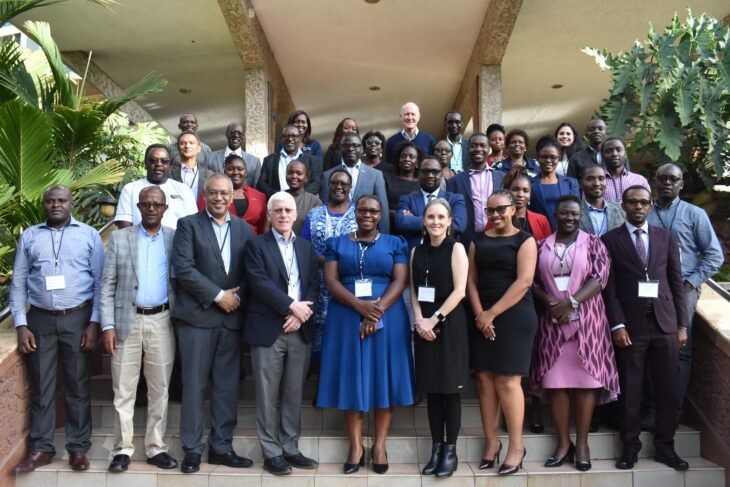In 2019, air pollution was linked to more than 1 million deaths in Africa. It causes a significant burden on health and livelihoods across the continent of more than 1.2 billion people. Fine particulate matter or PM2.5 has been linked to severe health outcomes, such as chronic heart and lung diseases, diabetes, and lung cancer. Several rapidly growing African cities are experiencing increases in air pollution, posing serious threats to the health and wellbeing of residents. Research has also shown that exposure to air pollution increases the likelihood of hospitalization and death. The negative impacts of air pollution also affect the economy, causing a loss of productivity, increased healthcare costs, and decreased tourism, among other things.
In East Africa, despite limited funding for work on air pollution, there are emerging signs of progress. At the Health Effects Institute’s recent workshop in Kenya, air pollution experts from across the region highlighted some positive trends.

Access to air quality data is expanding through leveraging new technologies
Collecting and analyzing local air quality data is a vital first step for understanding air pollution levels, identifying sources, and planning effective measures. Credible data is also important for assessing the effectiveness of policy interventions, in terms of cleaner air and related public health benefits.
Despite the lack of extensive and formal air quality monitoring infrastructure, important efforts are underway to clean up Africa’s air. Cities in East Africa are at the forefront of adopting low-cost air quality sensors. Nairobi and Kisumu in Kenya and Kampala in Uganda are installing networks of locally developed low-cost sensors to understand city-wide pollutant patterns, and then sharing this vital information with communities.
Creative public engagement strategies are helping make air pollution a public issue
As data become more readily available, organisations are identifying opportunities to engage with communities in creative and impactful ways to spur public engagement. For example, the UN Environment Programme and the Stockholm Environment Institute are partnering with Athletics Kenya to champion accelerated actions to improve air quality in Nairobi and across Africa. Drawing on Kenya’s rich legacy in athletics, the initiative has organized a series of commemorative events to leverage the power of sports to raise awareness and inspire action towards a healthier future.
Doctors at the Makerere Lung Institute in Kampala and Kenya Medical Research Institute in Nairobi are training community health workers, midwives, and school children on air pollution and its impacts on health.
Momentum on policy action is growing
Across East Africa, governments are investing in resources to expand air quality monitoring and to implement air quality management programmes. There is growing consensus that air quality actions are urgently needed, and it is important to learn by doing. Policymakers and officials are taking a pragmatic approach, with one saying: “In the face of limited resources, let us use what is available and learn from what has been done.”
Cities including Nairobi and Kampala have adopted city-wide action plans for cleaner air while broad coalitions are emerging to provide support to city officials. Policymakers at the city and national level are also working in close collaboration with researchers and practitioners to identify win-win solutions for clean air. Bolstered by the availability of low-cost air quality sensors, monitoring programmes have been launched in cities such as Kampala. Efforts are also underway to identify sources of pollution.
Next steps
Countries across East Africa have a significant opportunity to accelerate progress toward clean air, improved public health, and better quality of life. As public and governmental interest in air pollution grows, there is a pressing need for more data and evidence on pollution levels, sources, and health impacts. Furthermore, it is important to synthesize, translate and communicate available evidence to help accelerate air pollution action. This, in turn, will require local, national, and regional efforts and collaborations involving multiple sectors and stakeholders including government, researchers and civil society.
Image credit: Pallavi Pant

